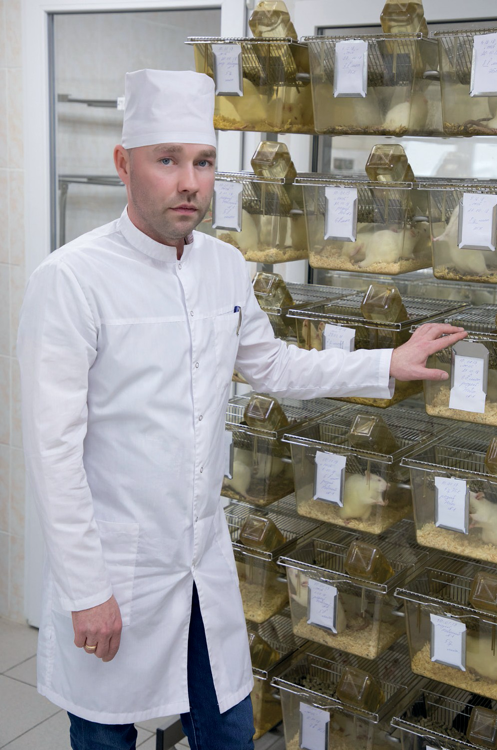KSMU RESEARCH INSTITUTE
![]()
Dear Colleagues!
We can say that modern society can neither exist nor develop without science. It challenges science to develop effective forms of its organization and activities.
Science is able to solve the problems of mankind and improve the quality of life, so the level of development of science can serve as one of the main indicators of the development of society.
At Kursk State Medical University, we follow the order of the President of the Russian Federation V.V. Putin: “In science, as well as in other spheres, we must achieve a real progress.”
Our research center with an experimental biological clinic is aimed at improving the effectiveness of scientific research and projects and also the competitiveness of university science.
KSMU research centers in terms of equipment are some of the leading in the country. Today we indisputably lead in the study of genetics in Russia and abroad. With the Scientific Research Institute’s opening of Genetic Bb Molecular Epidemiology, the main purpose of which is molecular genetic studies of socially significant human diseases and the search for evidence-based approaches to their prevention and personalized therapy, the Kursk region has the opportunity to carry out necessary for public health scientific, clinical and genetic studies on the highest technological level.
Using the capacities of research centers and the experimental biological clinic, we write dissertations for the degree of D.S. and Ph.D. and work on the state assignments. Scientific and pedagogical workers of the university participate in multicenter clinical testing’s of medicinal drugs.
One of the university’s activities is clinical-oriented research aimed at solving the problems of practical public healthcare service. The University is not only an educational, but also an organizational and methodological center, actively introducing the obtained scientific results into real clinical practice.
The University is proud of the results of scientific research in clinical departments; these results are reported at Russian national congresses, published in foreign journals indexed in Web of Science / Scopus, in journals recommended by the Higher Attestation Commission of the Russian Federation, in materials of international and All-Russian scientific and practical conferences.
The university cooperates with foreign educational, scientific organizations and medical clinics.
Students, residents and graduate students of the university take an active part in the research work.
The success of our scientists today is a reliable investment in the future. We have something to be proud of, and we have something to strive for!
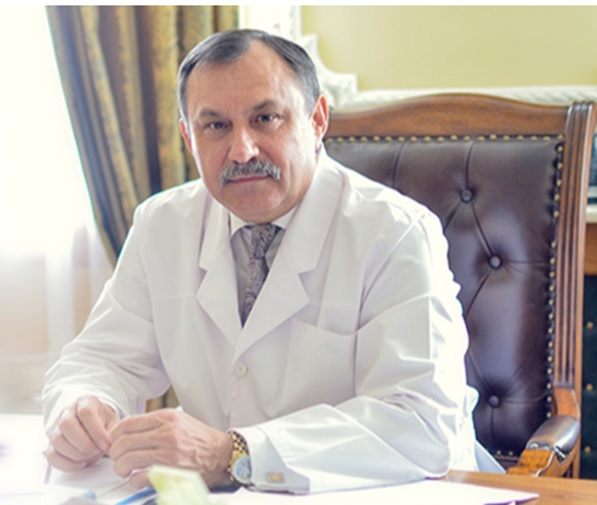
Victor Anatolyevich Lazarenko,
Rector of KSMU, Honored Doctor of the Russian Federation, Doctor of Medical Sciences, Professor, Member of the Kursk Regional Duma of the VI convocation
On the base of the university there are 12 scientific schools, numerous scientific laboratories, 4 councils for defending Ph.D. and D.Sc. theses, Central Black Earth Centre of RAMS. The university scientists have won recognition both in Russia and throughout the world. Our scientists are the authors of two scientific discoveries. Research and practical herald Human Health was included in 2007 into the list of publications of the Ph.D. theses investigation results on the recommendation of the State Commission for Academic Degrees and Titles. Annually the university organizes traditional, instructional and methodical conferences, locally and internationally. Also participate in All-Russia and regional scientific conferences, scientific sessions and forums of the student science with subsequent publications of the research results. The university is a medico-preventive, medico-diagnostic and consultative center of medical innovative technologies in practical health care. The academic staff of the clinical departments explains the methods of realization of the priority national project Health in the region.
Kursk State Medical University closely cooperates with domestic and international partner universities, academic research centers and industrial partners in the framework of various research projects
RESEARCH INSTITUTIONS
1. Research Institute of General Pathology
Professor BOBYNTSEV Igor Ivanovich
The Director, Doctor of Medical Sciences
The Research Institute of General Pathology (RIGP) was created on the basis of a decision of the Academic Council of the Kursk State Medical University dating from 01/18/2016 in order to increase the effectiveness of scientific research and concentrate on scientific platforms approved by the Ministry of Health of the Russian Federation. RIGP is a structural subdivision of KSMU, the tasks of which include carrying out scientific research in collaboration with leading academic and industry research teams, conducting joint research with foreign partners, developing and integrating with departments and scientific subdivisions of KSMU.
The RIGP includes three laboratories: general pathophysiology, morphology and path morphology, microbiology and magneto biology, provided with modern equipment for: studying the mechanisms of disease development in terms of the systemic organization of body functions, dysregulation pathology and developing effective methods for their treatment; studying the mechanisms of development of stress-induced pathology and the possibility of their correction by influencing regulatory systems; studies of the neurotropic effects of regulatory peptides, biologically active substances and drugs; studies of the influence of environmental factors of the Kursk magnetic anomaly on the state of reactivity and resistance of the organism and the state of microflora of barrier systems; studying the possibilities of correcting dysbiosis of various etiologies using eubiotics; preclinical medicinal drug testing.
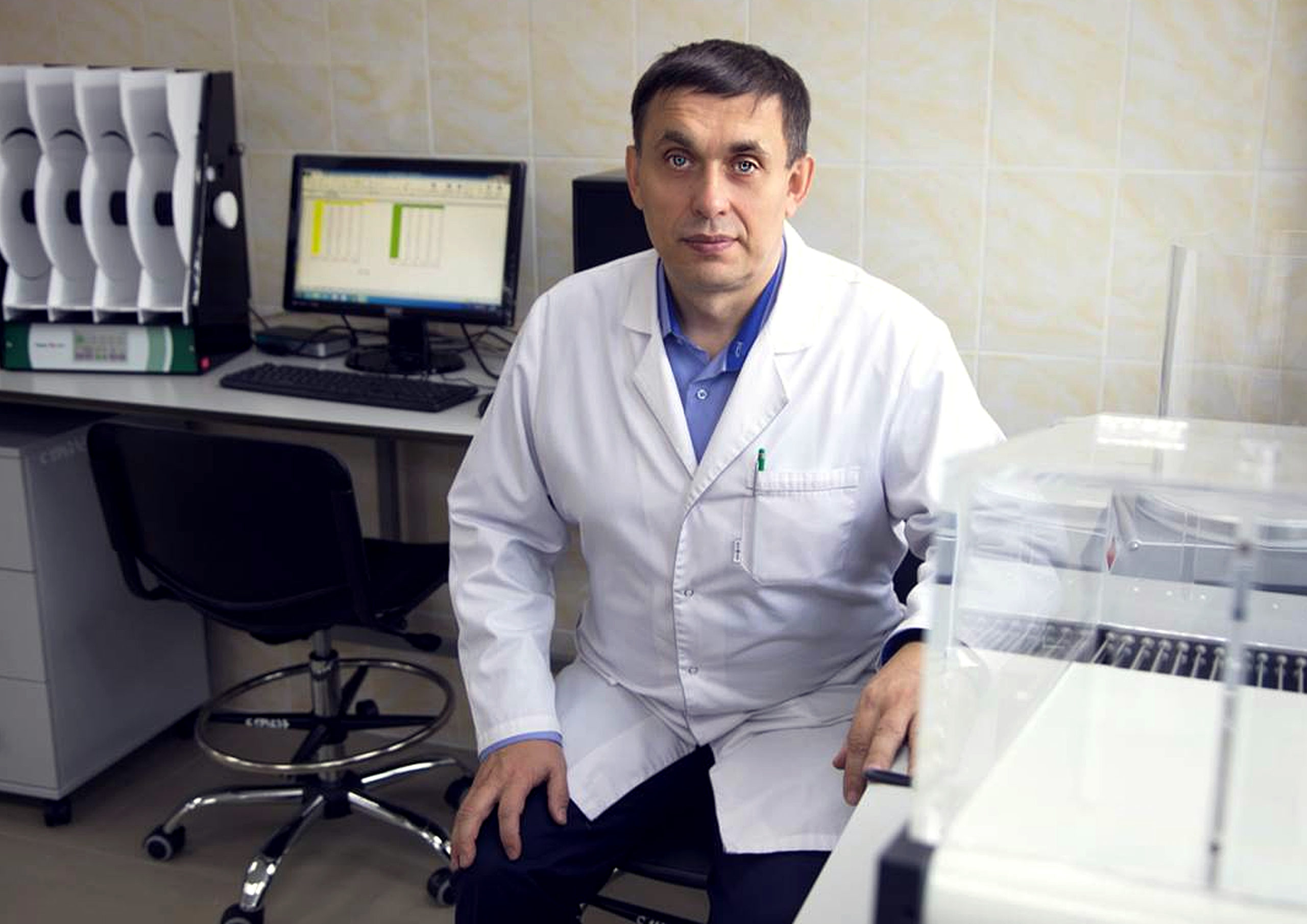
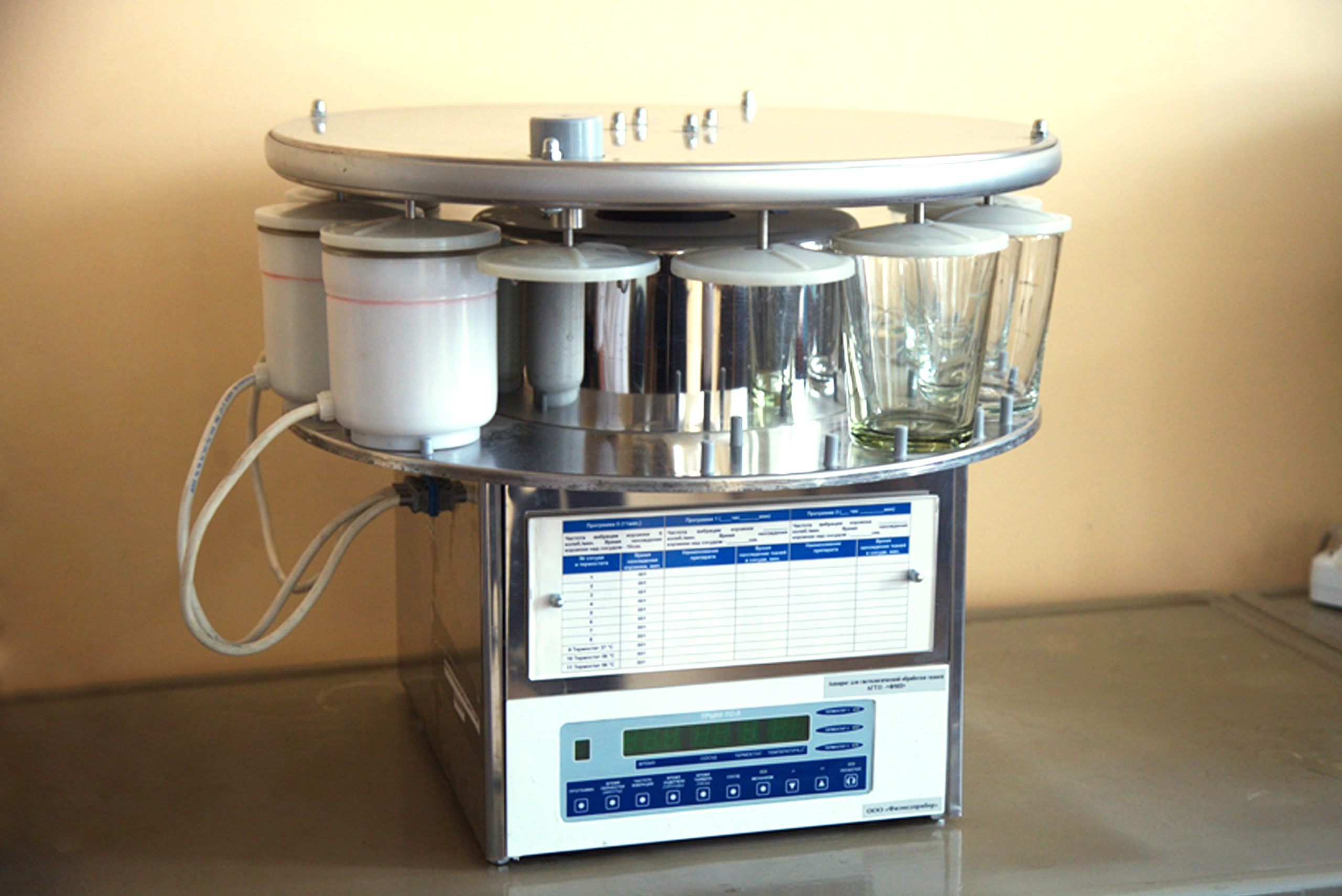
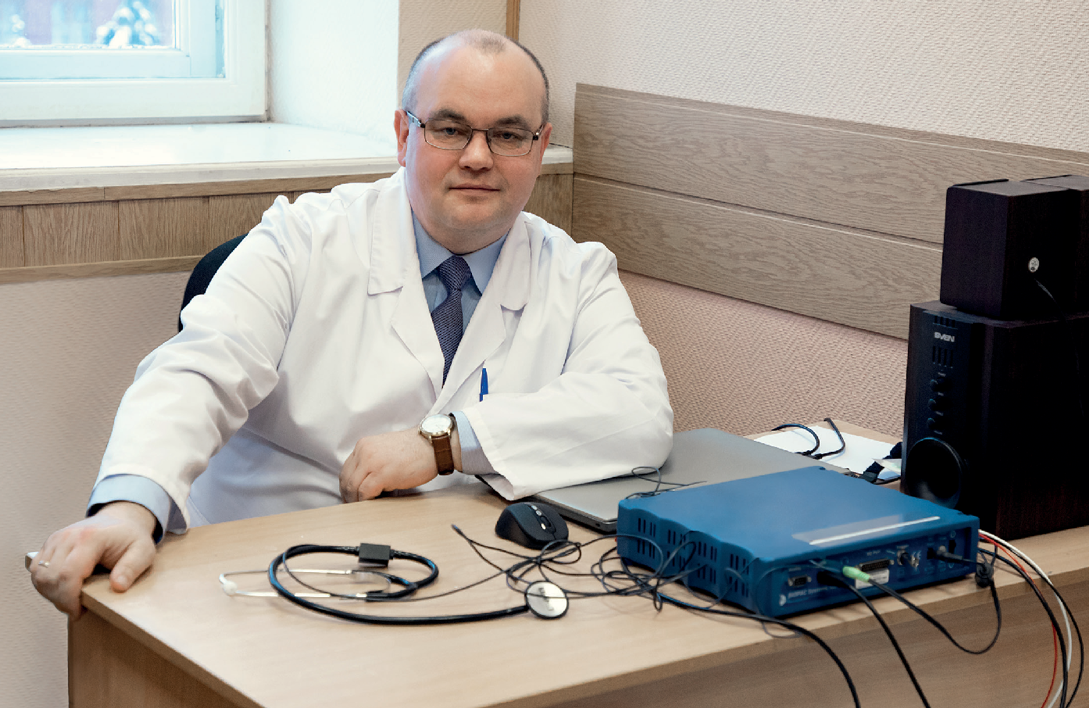
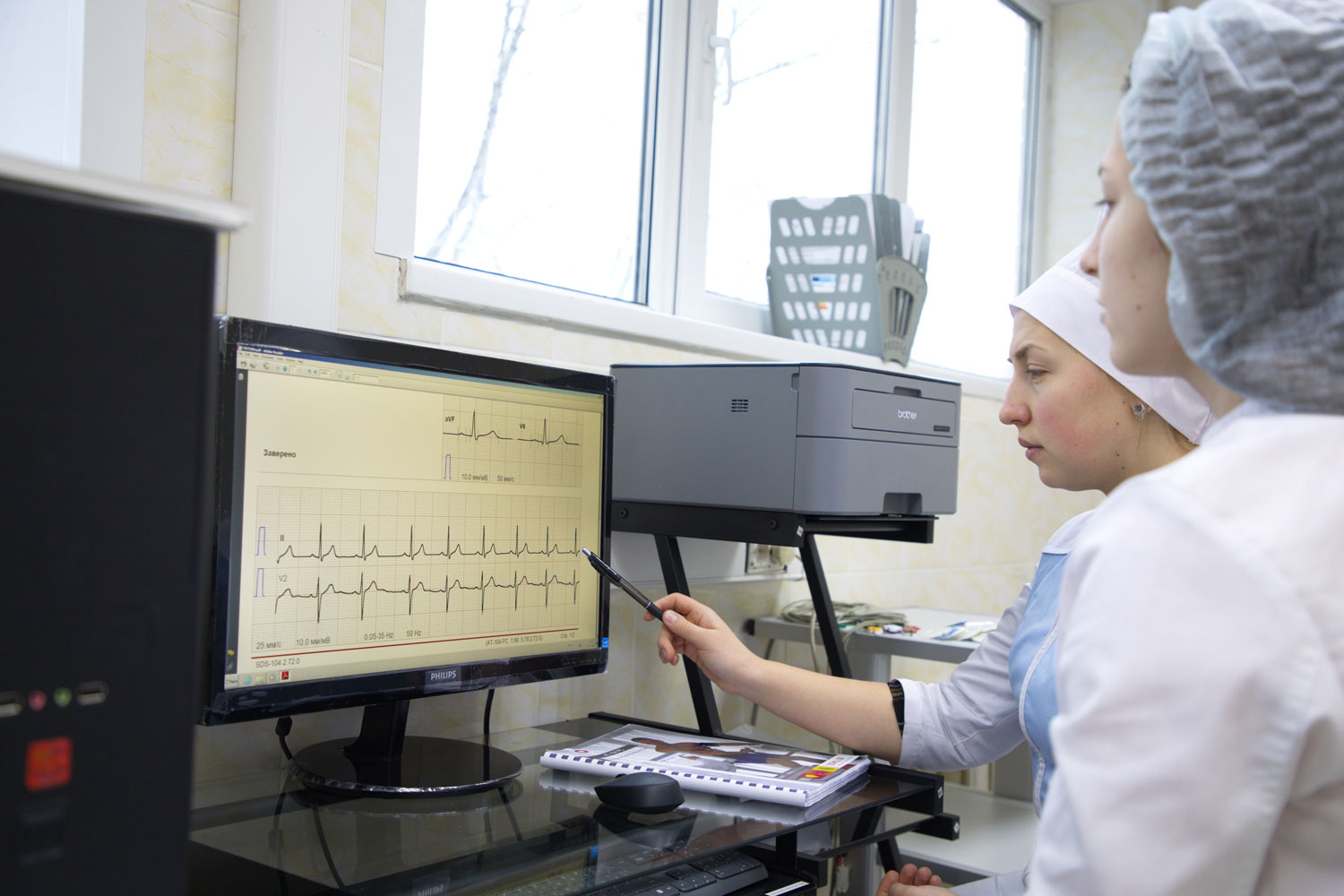
2. Research Institute of Physiology
Associate Professor Pavel Vladimirovich TKACHENKO
The Director, Doctor of Medical Sciences
The Research Institute of Physiology is provided with modern equipment that allows to complete the whole range of tasks.
- The neuromioanalyzer works with a complete line of registration of evoked potentials (mid latent and long latent auditory, visual for a flash of light and a chess pattern, short latent and long latent somatosensory), and also with the entire spectrum of electromyographic studies, including the study of the speed of motor and sensory fibbers, F waves and H – reflex, tunnel syndromes, surface and needle EMG, rhythmic stimulation, blink reflex and EMG screening;
- The Reactor system allows training with biological feedback (temperature, electro-kymographic, heart rate, respiratory, electroencephalographic), including training for children;
- The electroencephalograph analyser allows spectral analysis of EEG rhythms, including professional coherence functions of autocorrelation and cross-correlation analyses and brain mapping;
- Cardiac and Spiro analysers allow diagnosing the functional state of the corresponding physiological systems;
- The employees of the research institute developed a hardware-software complex that allows to do physiological and psychophysiological tests of the sensorimotor sphere of a person.
The team of employees of the Research Institute of Physiology invites research teams from other universities, scientific organizations and medical institutions in Russia and abroad to cooperate.
3.Research Institute of Genetic and Molecular Epidemiology
Professor POLONIKOV Alexey Valerevich
The Director, Doctor of Medical Sciences
Research institutes do their studies using the method of columnar isolation of nucleic acids and proteins at an automatic station. Genotyping of the obtained DNA samples is carried out by using real-time polymerase chain reaction and on the basis of time-of-flight mass spectrometry for full-scale genetic, epigenetic, transcriptome and mutational analysis.
For automatic sequencing of DNA fragments, employees of the research institute use capillary electrophoresis with detection of laser-induced fluorescence. Analysis of DNA fragments and determination of the status of gene methylation is carried out by pyrosequencing. Biochemical analysis of the metabolic profile based on Spectro-, fluoro- and chemiluminometry allows detecting various substrates and metabolic products in concentrations of Nano-picomole / l. The usage of modern methods of genetic statistics and bioinformatics makes it possible to assess the variability of the human genome and its contribution to the polygenic mechanisms of the development of socially significant multifactorial diseases.
The main research activities of the research institutes include: the study of etiopathogenesis and the genetic factors of the development of socially significant human diseases by assessing the structural and functional organization of genome-impaired metabolism; development and popularization of the ecological and genetic line in studying the mechanisms of the development of multifactorial diseases of modern mankind; the use of modern methods of statistical genetics and bioinformatics for studying intergenic and genetic-environmental interactions with the aim to understand the polygenic mechanisms of the development of multifactorial diseases; development of algorithms and diagnostic test systems for assessing a genetic predisposition to socially significant human diseases and clinical applications for personalized medicine; research and development using federal, regional sectoral and interdepartmental programs and projects, projects (grants) that received financial support from state scientific funds of the Russian Federation, other funds (including international funds of foreign organizations) and organizations, including those in the framework of international scientific and scientific and technical programs and projects; the organization of laboratory diagnostic tests, as well as the provision of advisory assistance to workers of practical healthcare.
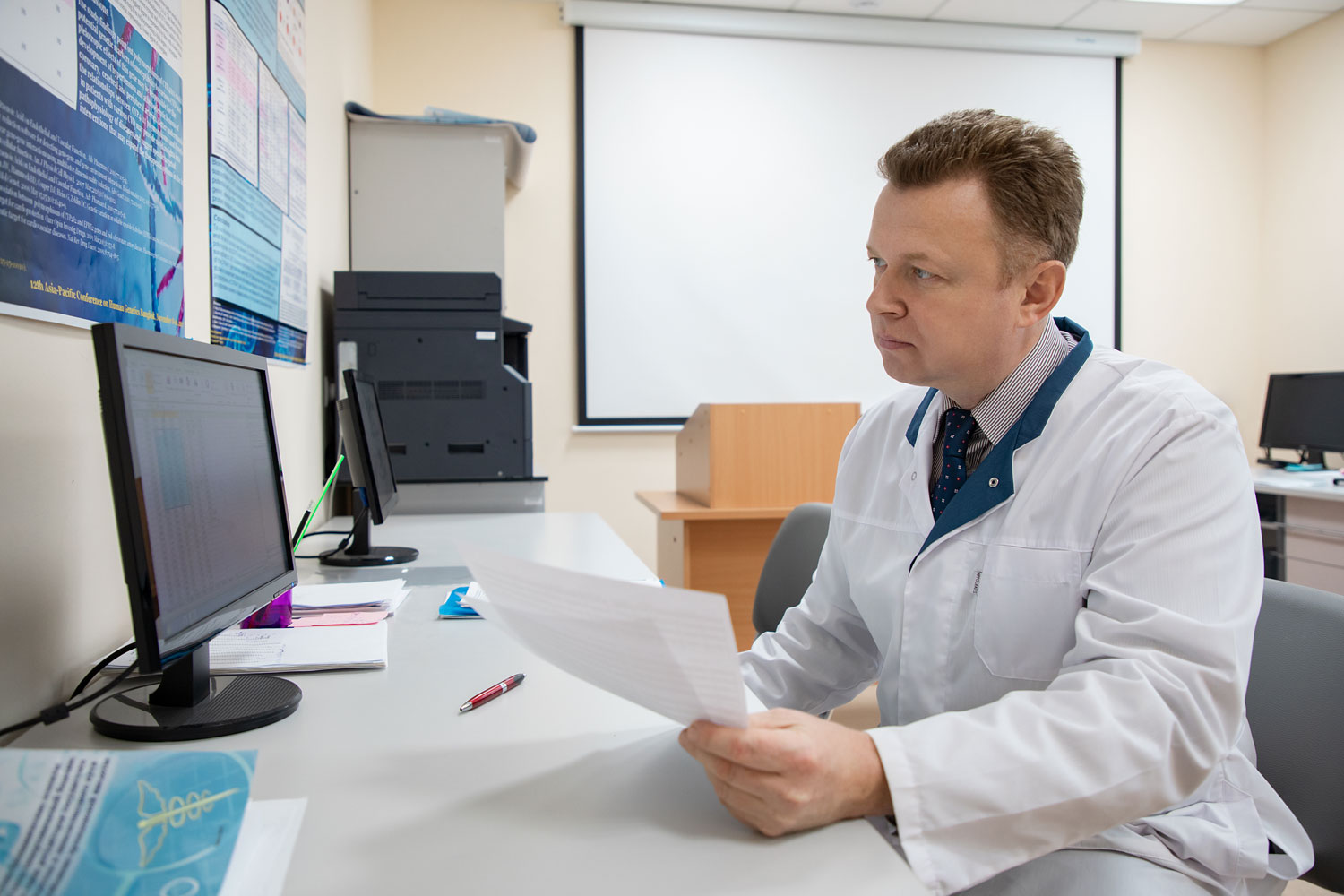
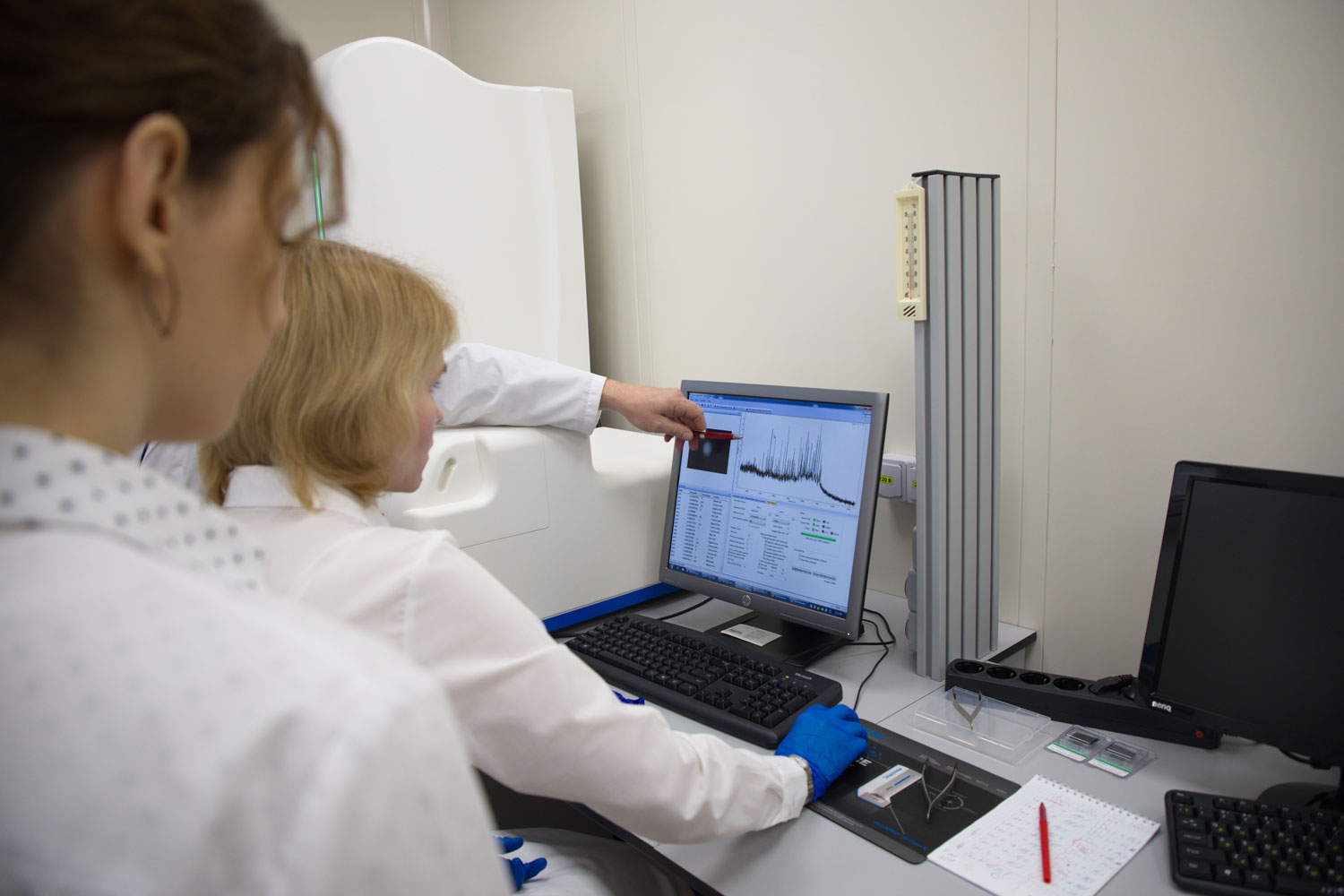
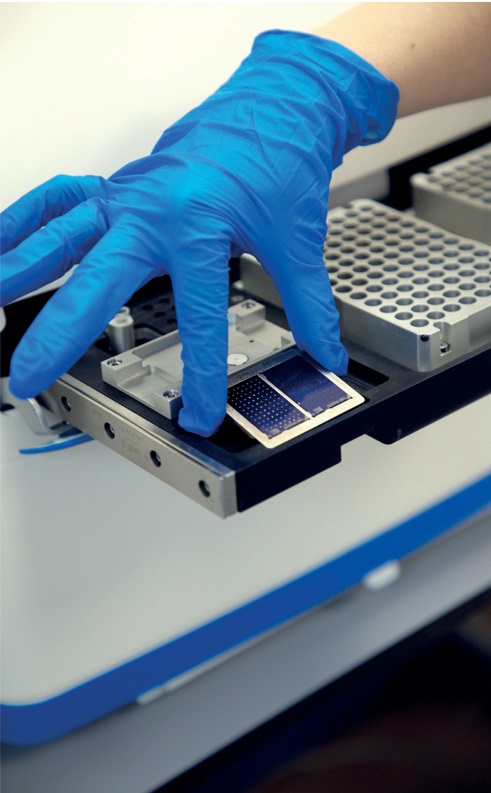
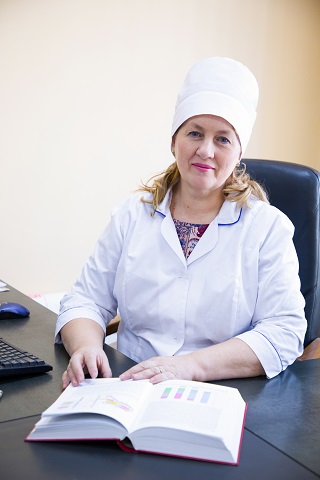
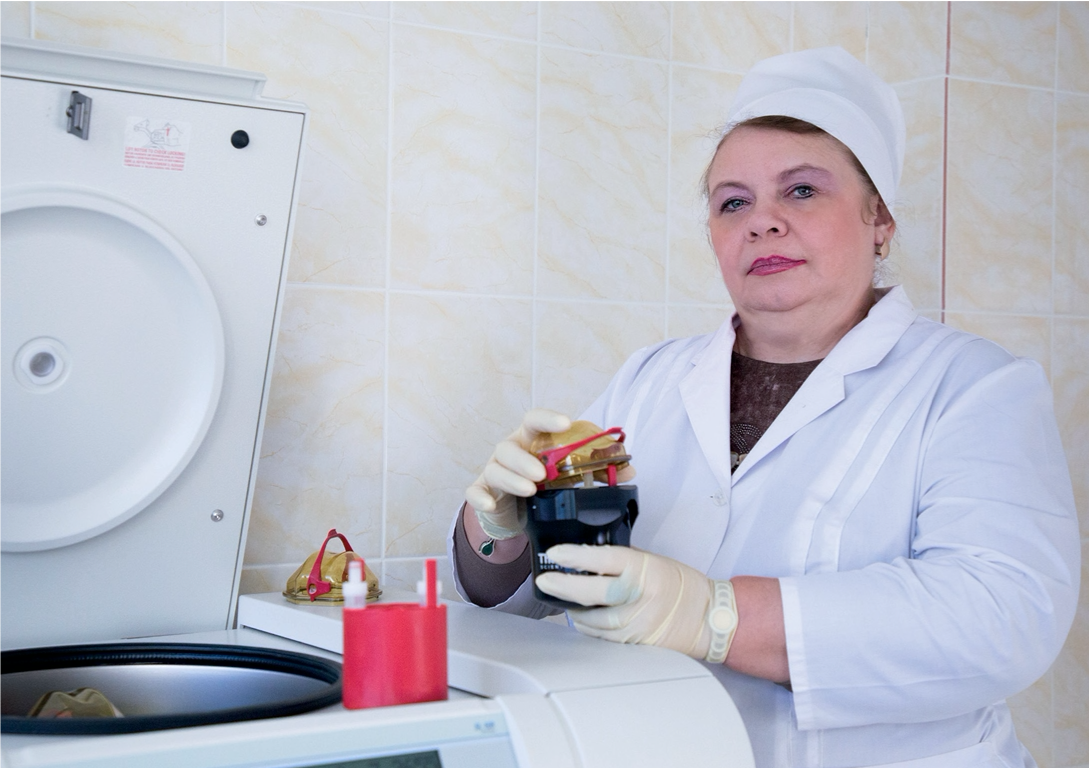
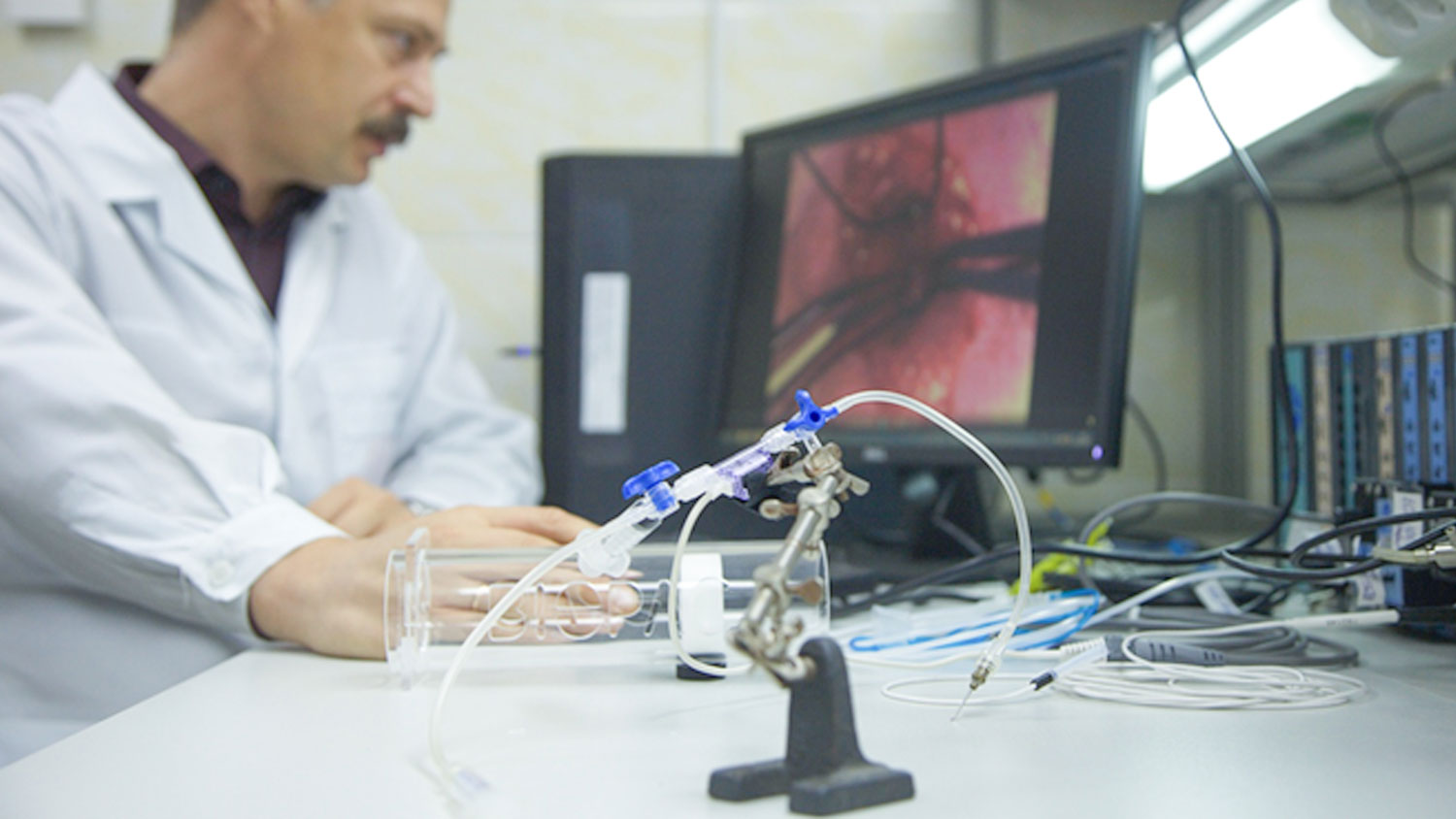
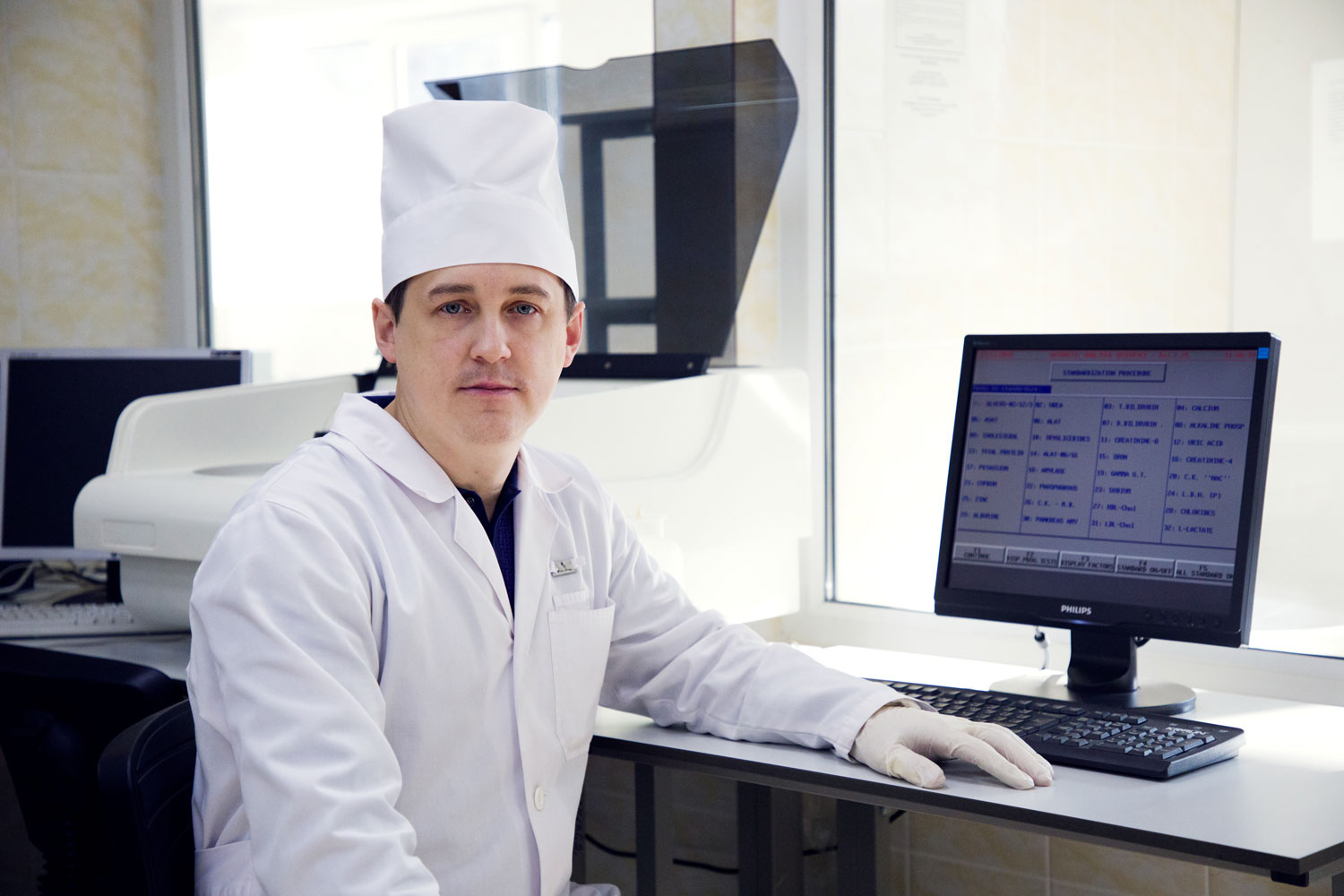
4.Research Institute of Experimental Medicine
ARTYUSHKOVA Elena Borisovna
The Director, Doctor of Biological Sciences
Research Institute of Experimental Medicine of KSMU was founded in 1993 in order to optimize integration of scientific research among departments and concentrate on intellectual and material resources available at KSMU.
The Research Institute of Experimental Medicine is the basis for interdisciplinary integration within the following scientific problems: “pharmacology, clinical pharmacology”, “atherosclerosis, CHD, arterial hypertension and hypotension”, “morphogenesis and regeneration”.
According to the results of scientific researches, which have been done at this research institute over the past 5 years, the institute’s employees have published 365 scientific papers which are in leading Russian journals (RSCI), and 33 publications are in journals included in the international databases Web of Science and Scopus.
On the basis of the Research Institute of Experimental Medicine, 9 doctoral and more than 50 PhD theses have been successfully completed and defended by doctoral and postgraduate students. Employees of the institute and scientists of the university who performed scientific research in the laboratories of the Research Institute of EM received 65 patents of the Russian Federation.
Employees of the Research Institute of EM took an active part in 15 international multicentre clinical researches held on clinical bases. These researches are of the 2nd-3rd phase of the efficacy, safety and tolerability assessment of the studied drugs of patients with various nosology’s.
The researchers are sponsored by: NTFF POLISAN LLC, Esperion Therapics, Inc., Beringer Ingelheim, Pfeiser Inc., Daichi Sankio Farma Development, Ber-lin-Chemie AG (Menarini Group), Alfa Wassermann S.p.A, GlaxoSmithKline Trading, etc. Preclinical tests of medicinal drugs are done, toxicological and pharmacological properties of 85 new and reproduced drugs are studied in the laboratory of preclinical studies of medicinal drugs of the Research Institute of EM.
MAIN ACTIVITIES OF EM RESEARCH INSTITUTE
Research activity
- Implementation of state assignments for scientific research and projects approved by the Ministry of Healthcare of Russia;
- Development of a systematic approach to optimization and personalization of the pharmacotherapy of patients with diseases of internal organs with the aim of primary and secondary prevention of diseases and quality improvement of patients’ life;
- Development of a multidisciplinary approach to the problem of cardiovascular diseases: coronary heart disease, dyslipidaemia, multifocal atherosclerosis (pharmacology, pharmacogenetics, pharmacoepidemiology, Pharmacoeconomics), study of lipid profile assessment using pharmacogenetic markers;
- The study of cardiotoxicity of anticancer drugs in the experimental and clinical conditions according to the integrated approach to the problem of “Cardio-oncology”;
- Optimization of treatment methods for surgical and oncological diseases, development and experimental testing of new methods of the diagnosis, treatment and prevention of surgical and oncological diseases;
- Improving the forms and methods of organizing students’ research work in the field of fundamental and experimental medicine.
The provision of scientific and medical services:
- Participation in preclinical and clinical trials of medicinal drugs
5.Experimental-biological Clinic
MIKHAILOV KONSTANTIN ALEXANDROVICH
The Head
In June 1937, a vivarium was organized at the Kursk State Medical Institute in order to provide students with laboratory animals for educational and practical training. Now the vivarium has the status of experimental biological clinic.
Nowadays the experimental biological clinic occupies the 2nd floor of the building of the EM Research Institute, with a total area of about 1000 square meters.
Functions and tasks of the experimental-biological clinic:
- keeping and preparing laboratory animals for biomedical research;
- breeding laboratory animals;
- providing practical classes for students with laboratory animals;
- providing research work with laboratory animals.
In the experimental biological clinic students and post-graduates perform research when writing theses; pre-clinical research of medical devices is also performed there. The experimental biological clinic is provided with specialized equipment certified according to the standard GLP. These are systems manufactured by «ZOONLAB» (Germany) for the laboratory rats and mice housing; racks manufactured by «AWTech» (Russia) for the rabbits’ housing.
A clinical and biochemical laboratory was organized to study samples of biological material from experimental animals.
Automatic biochemical analyser “ACCENT 200”:
- test samples – serum, plasma, urine, cerebrospinal fluid;
- device performance – 200 photometric tests per hour; types of measurements – by the endpoint method, the fixed time method and the kinetic method.
